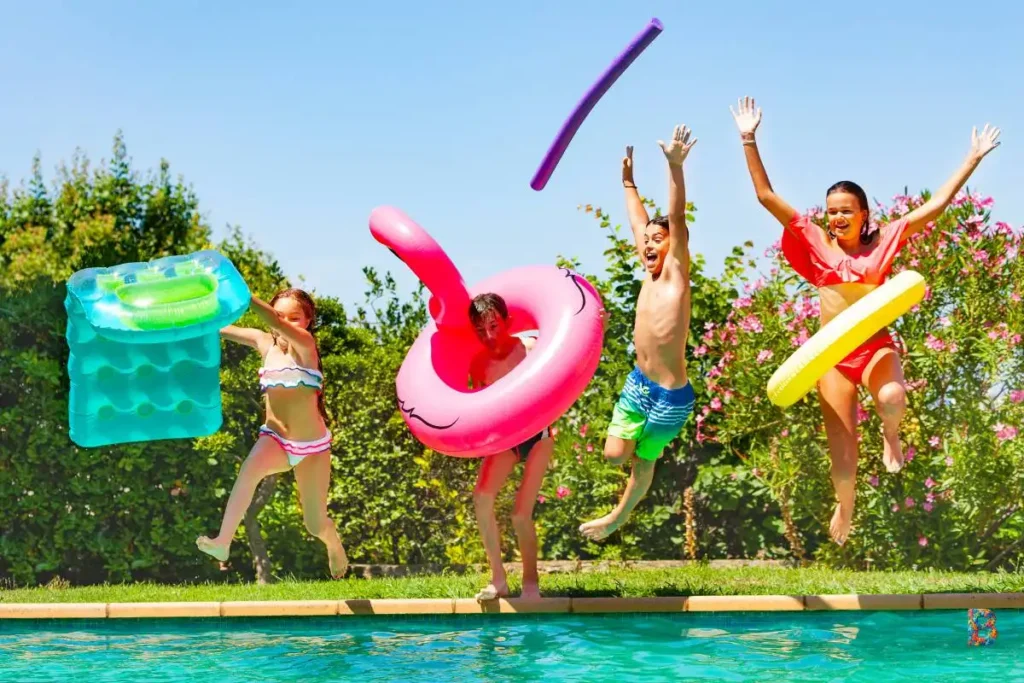Summer sun, summer fun? Not always for kids with autism. While the season promises carefree days, unexpected changes in routine, loud noises, and crowded spaces can turn sunshine into meltdowns. This article dives into the common summer challenges faced by autistic children, and equips you with solutions!
We’ll explore sensory-smart activities, tips for managing transitions, and strategies to create a summer of positive experiences for your child. Let’s turn those summertime blues into a season of joy.
Autism and Summer Challenges
Summer can be a challenging time for children with autism and their families. The change in routine, increased social demands, and sensory overload can lead to stress and anxiety.
a- Sensory Overload
Children with autism often have sensory processing issues, which means they may be hypersensitive or hypersensitive to certain stimuli. During the summer, the heat, bright sunlight, and loud noises can be overwhelming for some children with autism. Provide a safe and quiet space where they can retreat when they feel overstimulated.
b- Social Demands
Summer often means more social events and activities, such as family vacations, pool parties, and barbecues. For some children with autism, these social demands can be overwhelming and stressful. Prepare them ahead of time by explaining what to expect and providing social stories or visual aids to help them understand the situation.
c- Change in Routine
Children with autism thrive on routine and predictability. The change in routine during the summer months can be difficult for some children with autism. Create a daily schedule and stick to it as much as possible. This can help reduce anxiety and provide a sense of structure and predictability.
d- Wandering
Wandering, also known as elopement, is a common challenge for many children with autism. During the summer, the change in routine and increased outdoor activities can increase the risk of wandering. Take precautions to prevent wandering, such as using GPS tracking devices, teaching safety skills, and creating a safety plan.
Outdoor Activities for Sensory Play
Summer is the perfect time for children with autism to engage in outdoor activities that help them develop their sensory skills. Here are two fun outdoor activities that can provide sensory play for kids with autism.
Water-based activities can be a great way to engage children with autism in sensory play. Water play can help children develop their sensory processing skills, hand-eye coordination, and motor skills. For example, children can play with water balloons, water guns, or a sprinkler system. They can also play with water tables or sensory bins filled with water and toys.
Nature exploration games can be a fun way to engage children with autism in sensory play while also teaching them about the natural world. For example, children can play a scavenger hunt game where they search for different items in nature, such as leaves, flowers, rocks, and insects. They can also play a game where they identify different sounds in nature, such as bird songs, rustling leaves, and running water.
Social Skills Development Through Group Activities
Summer challenges can be an exciting way for children with autism to develop their social skills. Group activities provide a platform for children to interact with peers, communicate, and collaborate while having fun.
Participating in team sports can be an excellent way for children with autism to develop their social skills. Team sports such as soccer, basketball, and baseball can teach children the importance of teamwork, communication, and problem-solving.
In a team sport, children learn how to work together towards a common goal. They learn to communicate with each other, share ideas, and listen to each other’s opinions. Team sports also teach children how to deal with disappointment and how to handle winning and losing.
Drama and role-play activities can be a fun way for children with autism to develop their social skills. These activities allow children to practice social scenarios in a safe and supportive environment.
Drama and role-play activities can help children with autism develop their communication skills, emotional regulation, and social interaction. Role-playing allows children to practice social scenarios such as making friends, dealing with conflict, and expressing emotions.
Creative and Educational Indoor Projects
Summer can bring some challenges for kids with autism, especially when it comes to finding activities that are both engaging and safe. Fortunately, there are plenty of creative and educational indoor projects that can help keep children with autism entertained and stimulated. Here are a few ideas for indoor activities that can provide fun and learning opportunities.
Arts and Crafts
Arts and crafts are a great way to engage children with autism and help them develop their creativity and fine motor skills. Some ideas for arts and crafts projects include:
- Making collages using different materials like paper, yarn, and fabric.
- Creating sculptures using clay or playdough.
- Painting with watercolors or acrylics.
- Making jewelry using beads or other materials.
- Creating a sensory bin filled with materials like sand, rice, or beans.
Science Experiments
Science experiments can be a fun and educational way to engage children with autism and help them learn about the world around them. Some ideas for science experiments include:
- Making slime using glue, borax, and food coloring.
- Creating a volcano using baking soda, vinegar, and food coloring.
- Building a simple circuit using batteries, wires, and light bulbs.
- Growing crystals using Borax and hot water.
- Creating a lava lamp using oil, water, and food coloring.
Strategies for Overcoming Common Obstacles
Children with autism often face unique challenges during the summer months. Several strategies can help them overcome common obstacles and enjoy their summer break.
Routine Disruptions
One of the biggest challenges for children with autism during the summer is the disruption of their daily routines. To help them cope with this, parents and caregivers can create a visual schedule that outlines the activities and events for each day. This can help the child feel more secure and reduce anxiety.
Maintain some structure in the child’s day, such as regular meal times and bedtimes. This can help them feel more comfortable and prevent meltdowns.
Overstimulation Management
Summer activities can be overwhelming for children with autism, especially those that involve crowds or loud noises. To help them manage overstimulation, parents and caregivers can:
- Plan activities during less busy times
- Use noise-cancelling headphones or earplugs
- Take frequent breaks in quiet, calm areas
- Give the child a warning before transitioning to a new activity or location
Be aware of the child’s sensory sensitivities and adjust activities accordingly. For example, if the child is sensitive to bright sunlight, plan outdoor activities during the early morning or late afternoon when the sun is not as intense.
By implementing these strategies, parents and caregivers can help children with autism overcome common summer challenges and enjoy their break to the fullest.







